In Brazil, local cinema has been deeply affected by the predatory Hollywood business model.
While most theatres are quickly occupied by the latest summer blockbuster, many national productions go through several phases of requests, applications, interviews and evaluation by the Ministry of Culture just to receive their distribution budget.
When the money does arrive, it is usually short. Most cultural productions in the country are supported by the Rouanet Law. It sets a budget for every project – feature films, music festivals, books, short films, etc. – according to how much they have collected the previous year. This limited amount is the entire investment Brazilian culture will receive that year.
This system is very helpful in getting the funds in the hands of people who otherwise might not be able to make art. However, the extensive processes, requests, checks and limited budgets can slow down their reach once finalised.
For instance, a Hollywood film can pay its distributors to get the best rooms and times for exhibition, whereas national films and their limited distribution fund will have to settle for a 2:30 PM slot on a Wednesday. This, unfortunately, creates the perception that people don’t like watching Brazilian films and that they don’t make any money.
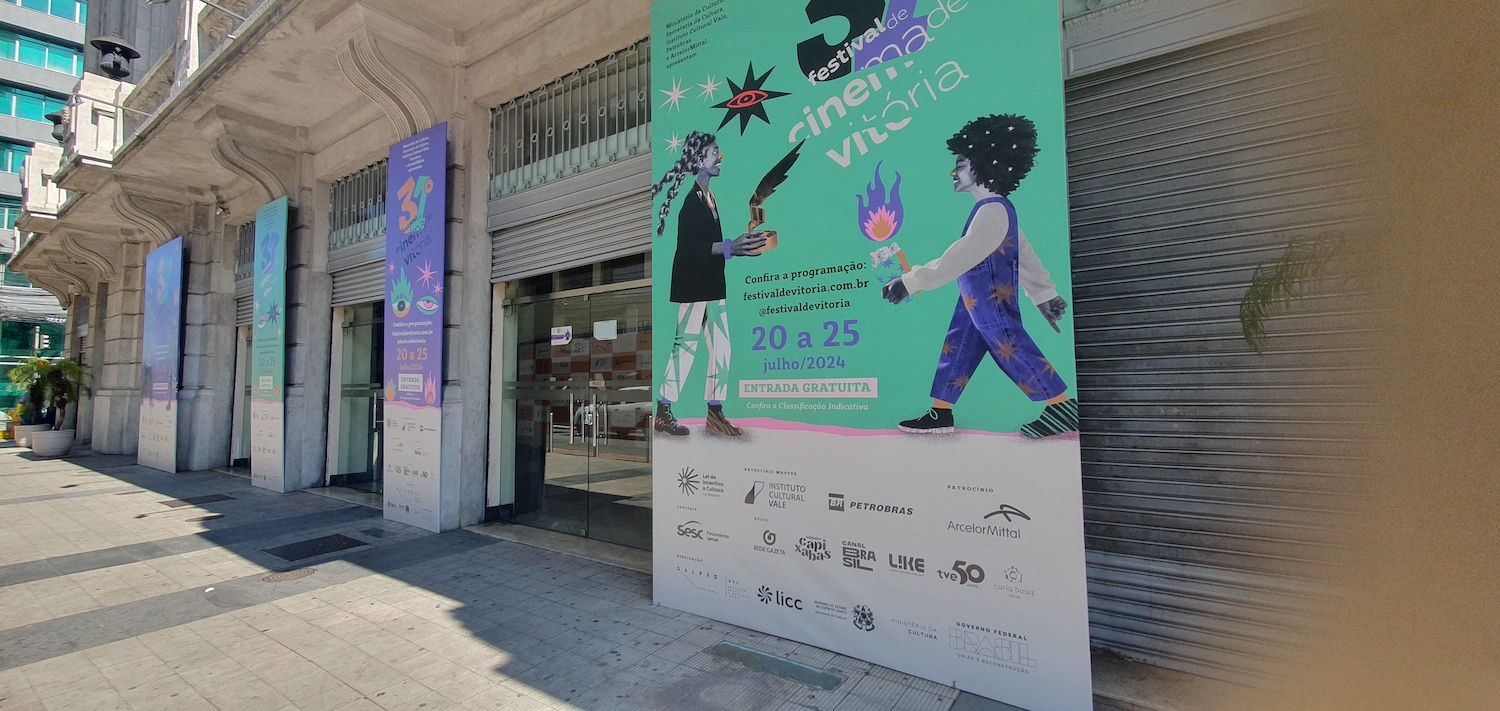
Enter Festival de Vitória
31 years ago, a group of young filmmakers bucked this model and gathered as many local audiovisual projects as they could. And they screened them — for free — for anyone who wanted to watch. Quickly, these gatherings grew and soon they were hosting competitive showings of films and music videos from all over Brazil, Latin America and Africa.
Today, Festival de Cinema de Vitória is the largest film event in the Brazilian state of Espírito Santo. The capital, Vitória, is an 89 km² island with a landscape as rich as its culture. It encompasses mangroves where crabs are caught by hand, beaches with environmentally protected turtles, hills you can climb and the amenities of city life awaiting you by the end of the day.
The area where the festival happens every July (our winter, but with a summer feel) is just as culturally rich and diverse as the films themselves. With historical buildings at the city centre and local restaurants – serving up dishes typical of Brazilian cuisine such as dadinho de tapioca and baião de dois – all within walking distance, attendees are invited to explore the area and sometimes simply happen upon some of the locations of the films they’ve just seen.
The whole event takes place in the historic city centre, more specifically, at the Teatro Glória, a 1932 art déco construction. The place has always been a space of cultural relevance, alternating between a cinema and a theatre, or both, throughout its history. Today it’s home to modern screening rooms, a state-of-the-art theatre, many meeting areas and creative laboratory spaces.
Right across from the building you have a few other historical landmarks, such as the lovely Costa Pereira Square and the Carlos Gomes Theater, which opened in 1927 to take over the Melpômene Theatre (1896-1924), after a fire that led to its demolition.
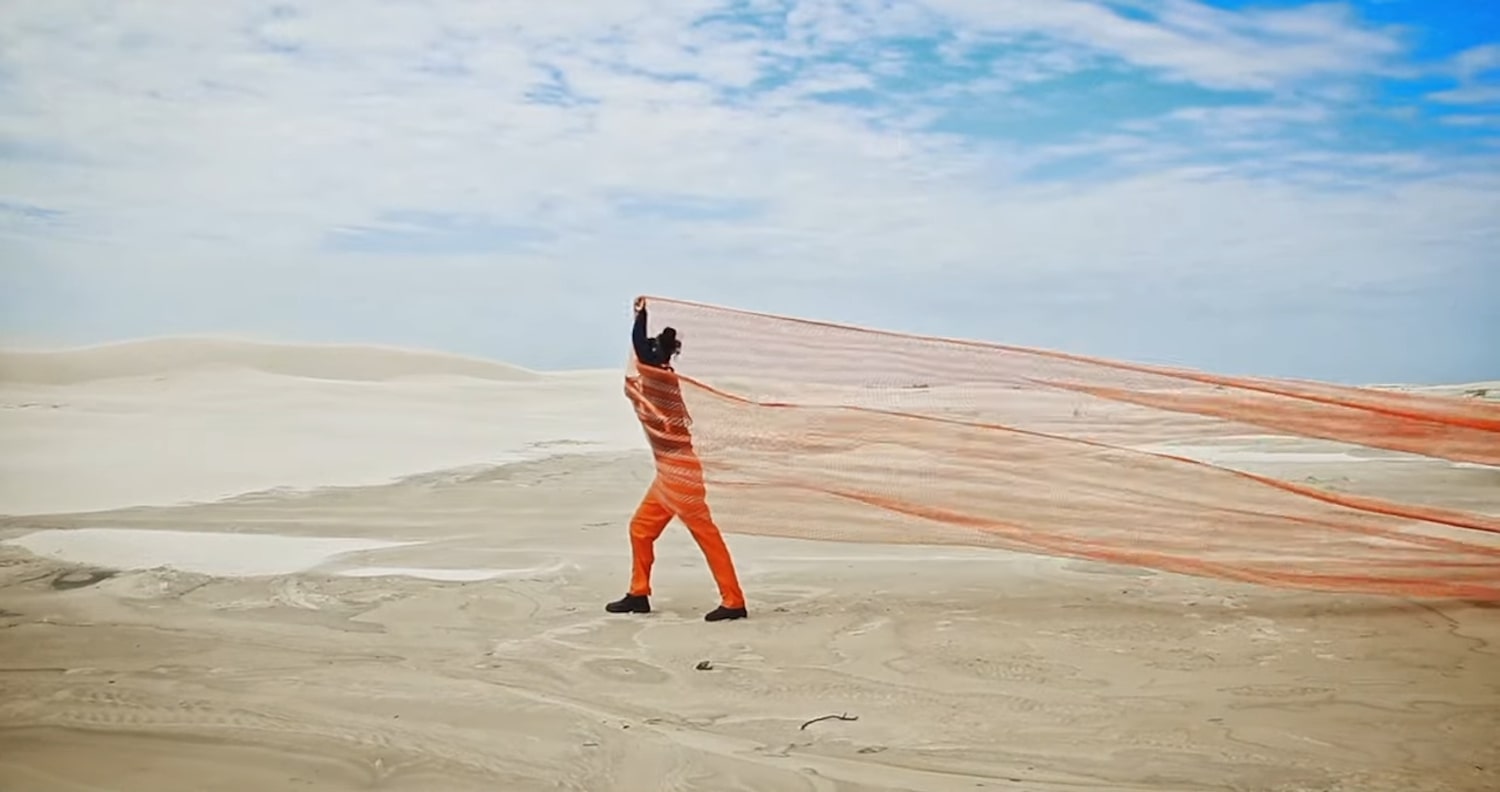
An All-Brazilian Line-Up
This year in Vitória we have three documentaries and two fiction competitors. All Brazilian. On the first day, there’s the documentary Presença (Presence), by Erly Viera Jr (2024). The filmmaker brings to the forefront three internationally recognised Afro-Brazilian artists — Marcos Vinícius, Rubiane Maia and Castiel Vitorino Brasileiro — who through their performances and self-reflections question the roles and limits we appoint to our own bodies.
What’s fascinating about Erly’s work is his perception of the body as an extension of the territories we occupy. How tanned you are, how you smell, how many teeth you have in your mouth. These are indicators of your standing in the world, a reflection of how capitalism and colonialism patrol our bodies. The artists in the film are not only using their bodies to create art but to fight the social prisons they have been put in.
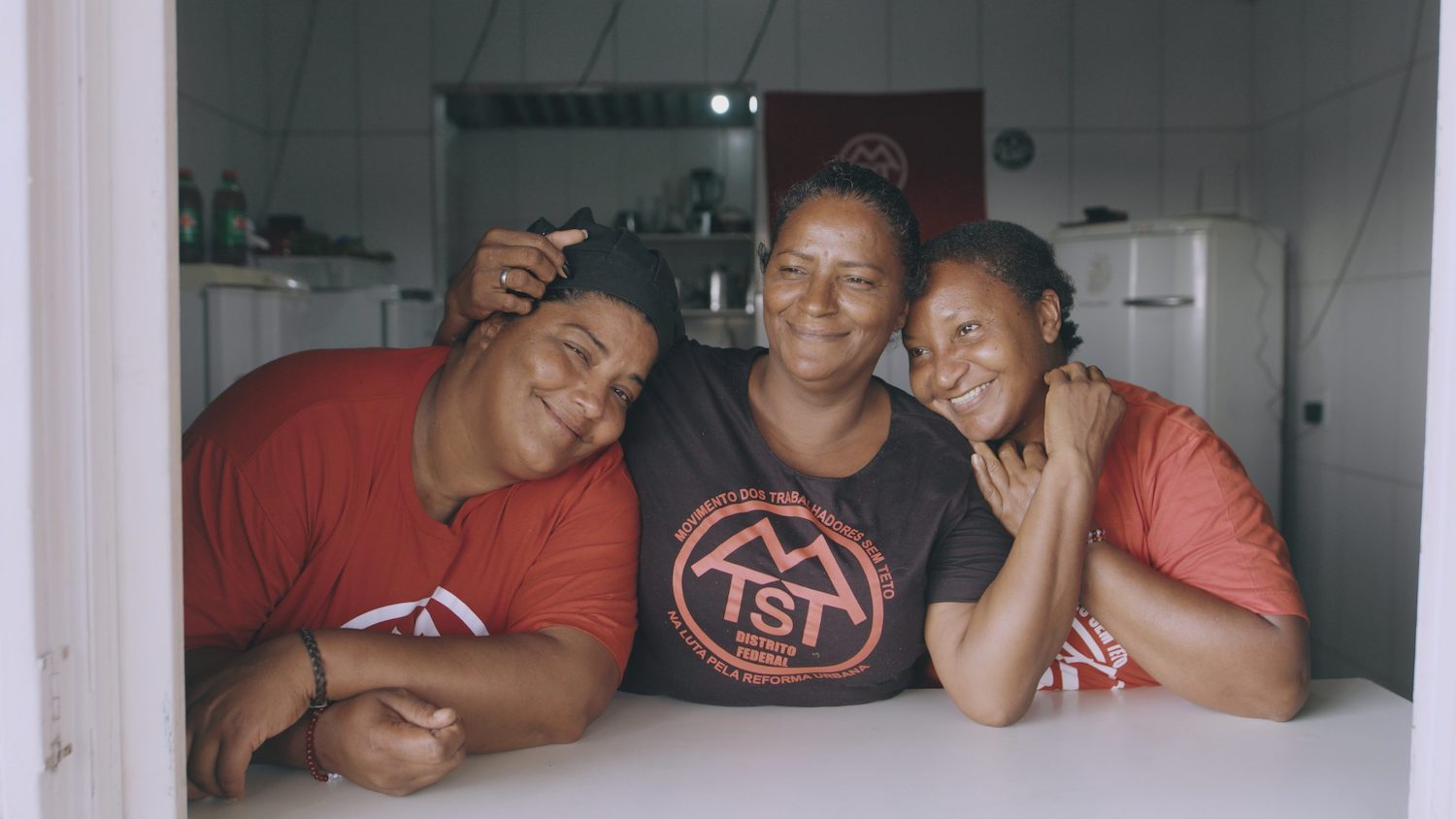
Next, we have another documentary. Não Existe Almoço Grátis (something like “No Such Thing as Free Lunch”) by Marcos Nepomuceno and Pedro Charbel (2023). The narrative follows Socorro, Jurailde and Bizza in December of 2022, on the cusp of Lula’s presidential inauguration. The group is responsible for the Solidary Kitchen of the Homeless Workers Movement at Sol Nascente, the largest favela in Brazil, located in Brasilia. With the inauguration around the corner, they have to find a way to cook for the hundreds of people coming to the country’s capital to watch the ceremony.
The film uses the presidential inauguration as a backdrop to discuss the state of democracy in Brazil and how people like Socorro, Jurailde and Bizza — three black women from the favelas — are the ones doing the daily, and often invisible, work of feeding (literally and metaphorically) the anticapitalist, feminist fight.
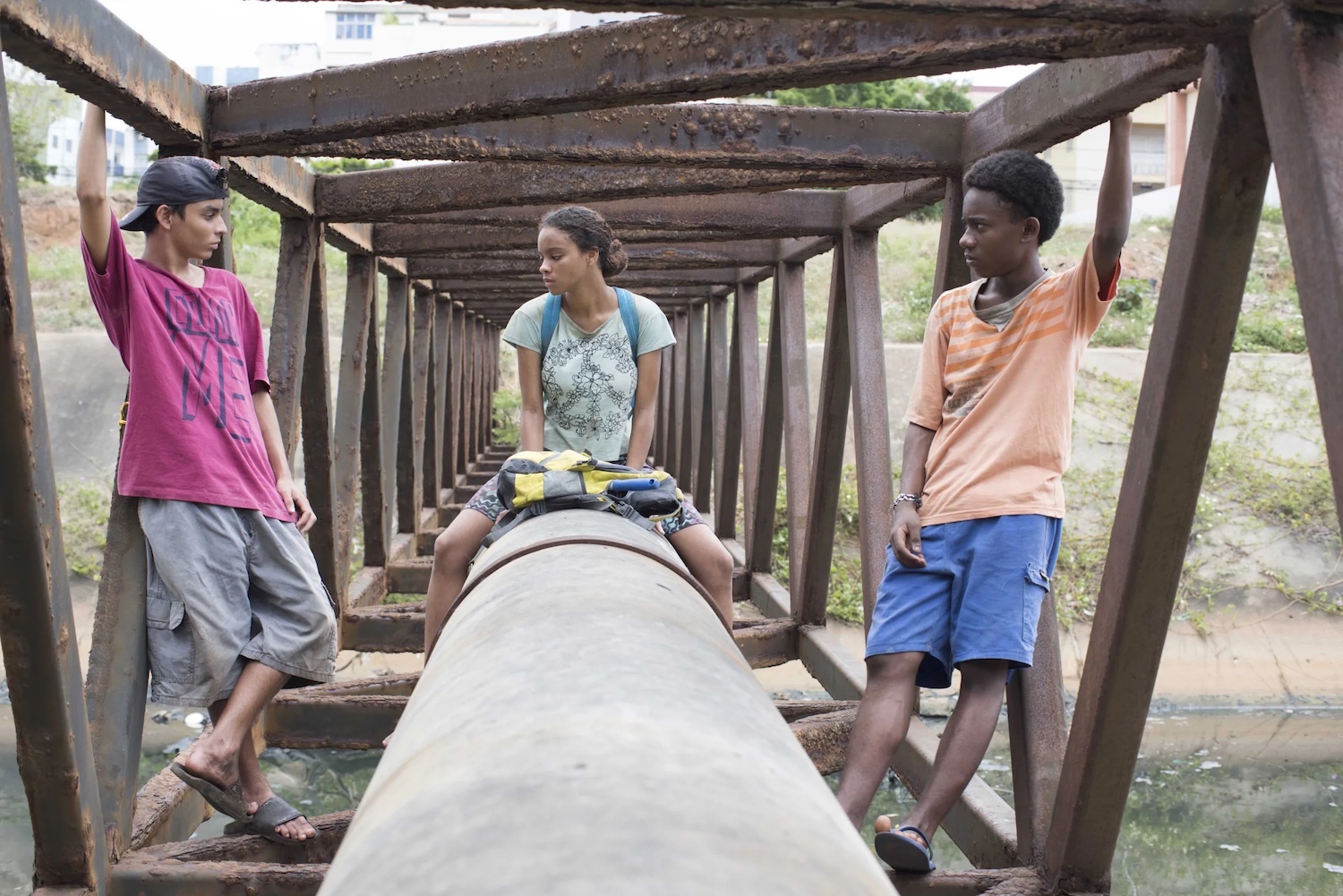
On the third day of screenings, we have our first fiction feature film, Café, Pepi e Limão (2024) by Adler Kibe Paz e Pedro Léo. Due to a family vengeance that haunts him, Café must escape the countryside. When in Salvador he searches for his father, who is incarcerated in a local prison. Meanwhile, Pepi, who lives in the favelas of Salvador, is assaulted by her stepfather and kicked out by her own mother. In another part of town, Limão lives in a hole under a viaduct with his mother, Marta, who is progressively sinking into addiction. These three stories converge as they band together in an attempt to survive.
While the three main leads deliver beautiful character moments, the film falls short on some narrative and technical aspects. The filmmaking here is competent, but when watching it next to the other competitors, the lack of clarity in execution becomes apparent. Additionally, the screenplay falls trap to many stereotypes when it comes to representing the favelas and the marginalised groups who occupy them. A term I’d use to describe it is, unfortunately, trauma porn.
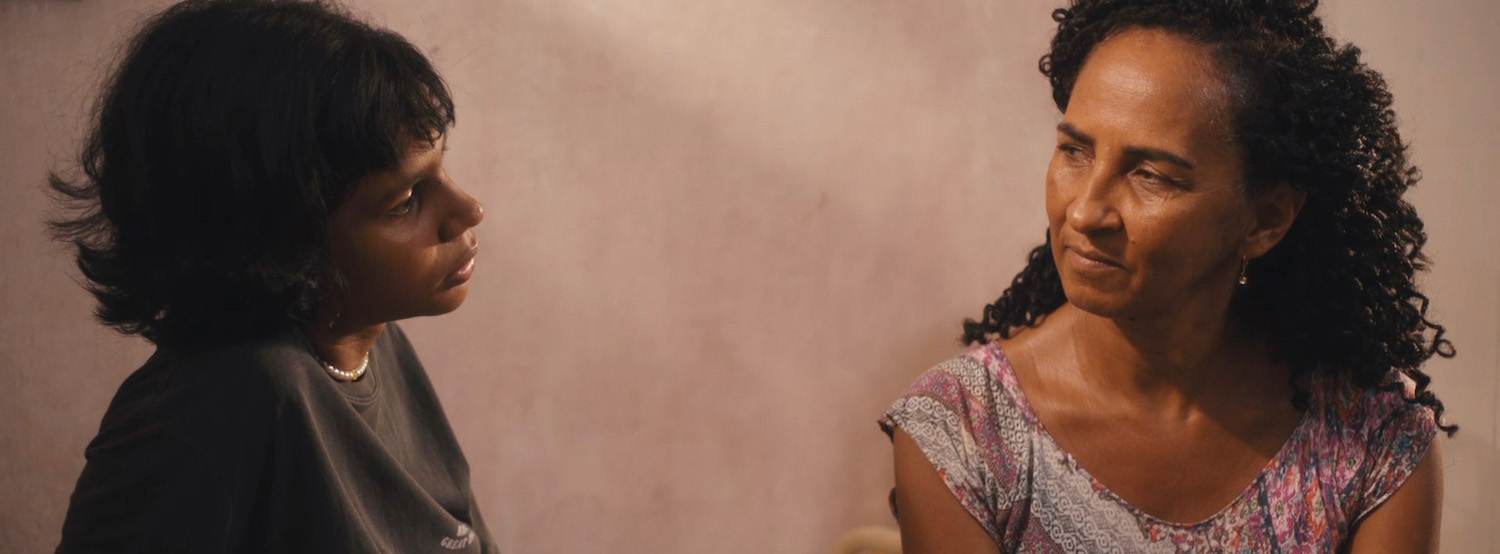
Following that, we have another fiction, Quando Eu Me Encontrar (When I Find Myself) by Amanda Pontes and Michelline Helena (2023). The film follows the ripples caused by Dayane’s departure, a young woman who disappears in the middle of the night. Her mother, Marluce, puts up a cold front about the whole situation; Mariana, her young sister, is faced with trouble in her new school; and Antônio, Dayane’s fiancé, struggles to find meaning in the emptiness left by her absence.
This film weaves a masterful visual narrative. The three characters are constantly framed in big empty rooms, highlighting the negative space left by Dayane’s disappearance. Their dialogue is often stilted. They’re like kids learning how to speak, as if they have unlearned how to be people after such a sudden loss. But what’s truly impactful is how, even though she is never on screen, Dayane’s presence is constantly felt in gaps.
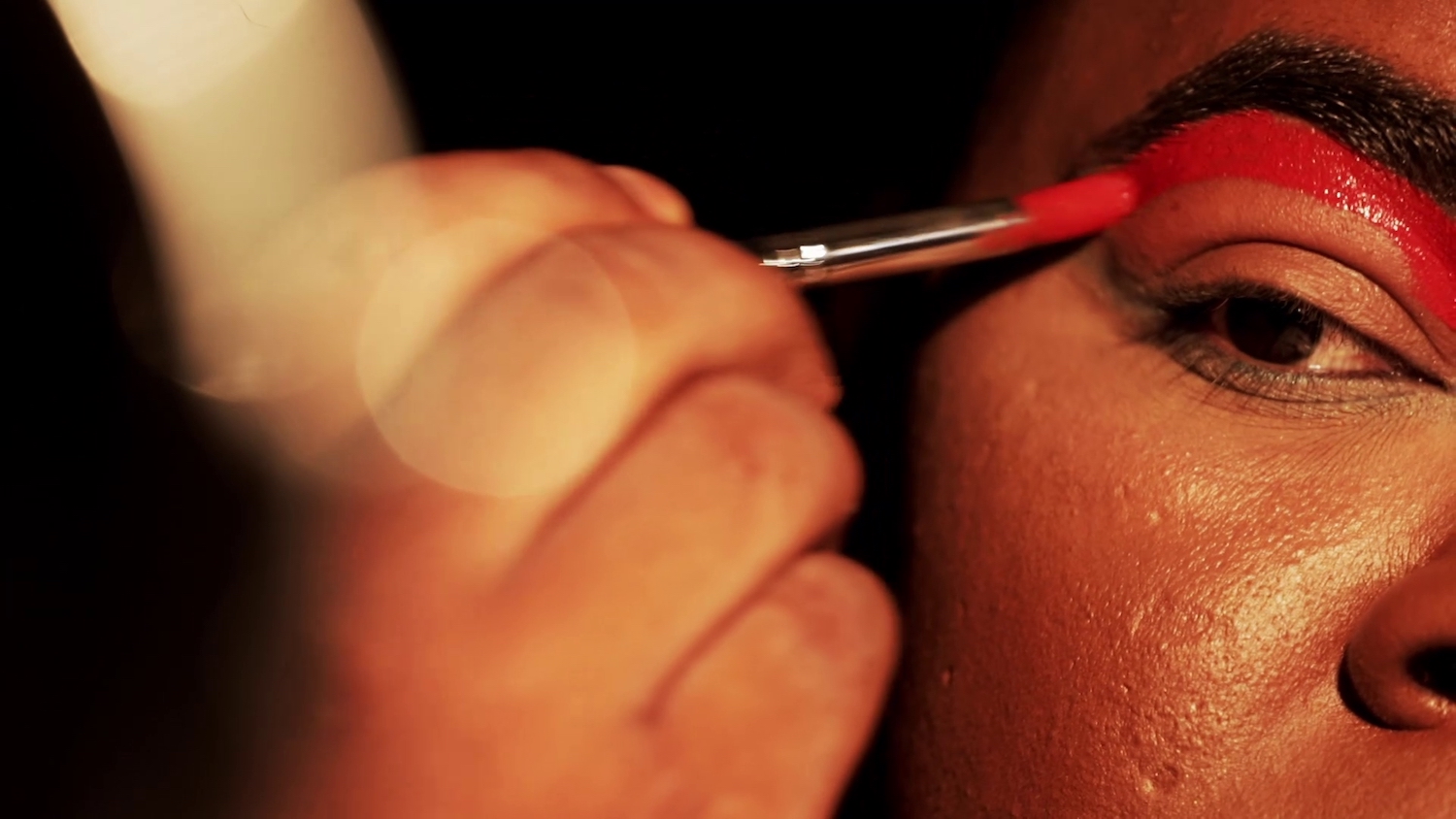
Finally, we have the documentary Sekhdese (meaning wisdom in Yathê, the Fulni-ô language of Pernambuco) by Graciela Guarani and Alice Gouveia (2023, feature image). In a collection of interviews tapped between 2018 and 2023, the filmmakers weave a narrative of activism for native nations’ rights, environmental issues, female empowerment, and the preservation of cultures that have been so long violated.
Aesthetically speaking, the film opts for a more traditional style of documentary. Sit-down interviews are mixed in with on-the-ground footage of protests, occupations and other situations the interviewees find themselves in. The most interesting parts of the film are the ideas brought up by the people themselves.
Cinema for The People
These are only a small part of the vast and expansive programme.
This year the festival screened 74 projects, alternating between short fiction films, mid-length documentaries, animation and even music videos. The curation for the Festival de Cinema de Vitória hopes to be in dialogue with the local people and create a cinema experience by, for and about them.
To achieve their goals, the festival offers free tickets for anyone who arrives and they partner with local schools for their students to come and watch the films.
And this focus on contributing to the local film scene is reflected in the many masterclasses, workshops and debates on offer. Storytelling, film distribution, acting. These are led by industry veterans and are completely free for the public.
The Festival de Cinema de Vitória is truly unique. With diverse programming — both thematically and stylistically — free classes and a laid-back atmosphere, it has slowly built a community where making cinema accessible and part of the local cultural scene is the main goal.
To me, the festival means an opportunity to enjoy cinema in its original form. A place of art, experimentation and, most of all, communion.
Lívia Reim has contributed to Certified Forgotten, LatinaMediaCo, Dread Central and other publications, focusing mainly on the horror genre and feminist topics.
